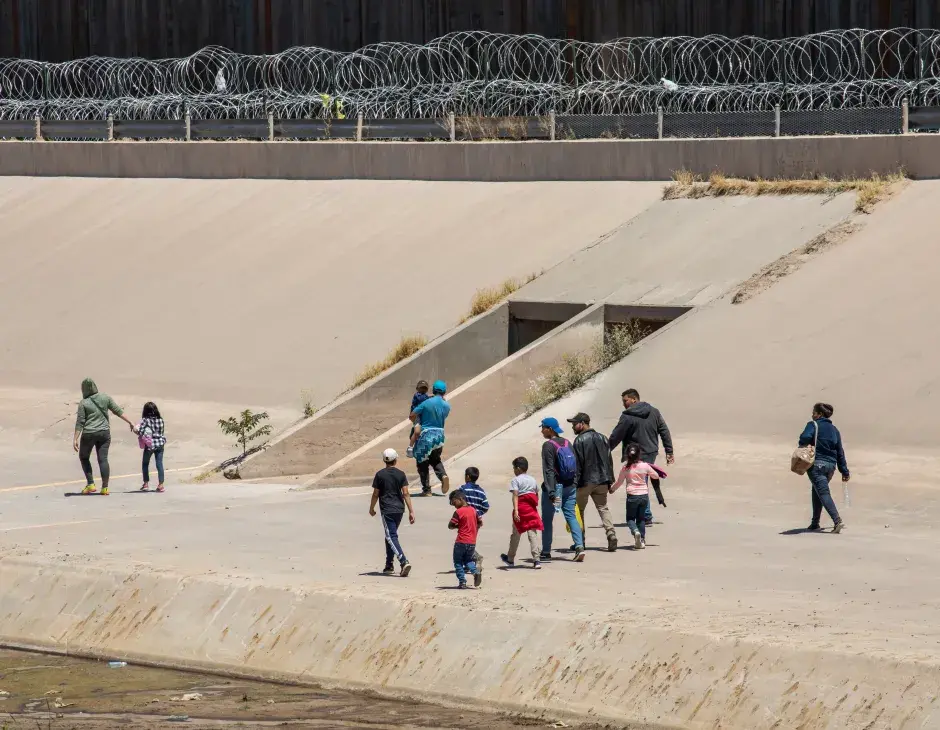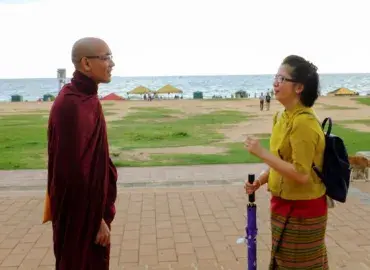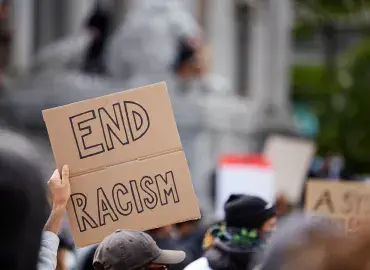Consultations with North America's Religious Leaders Yields key Recommendations on COVID-19, Racism and Plight of Refugees
Distinguished religious leaders, government officials, academic experts and business leaders from North America met yesterday to outline a number of bold interfaith responses in a bid to tackle the ongoing global COVID-19 pandemic, as well as other human rights issues such as racism and the plight of child refugees.
The conclusion of the virtual North America Regional Consultation marked the close of the fifth in a series of high level regional meetings that have led to dozens of policy recommendations for the global G20 Interfaith Forum.
Recent meetings have seen religious leaders, government officials, academic experts and business leaders from the Arab region highlight ways to improve coexistence and the environment. The Asia region consultations led to a series of recommendations on climate change and helping the economically disadvantaged. Recommendations from Latin America and Europe are also being gathered after initial consultations, while the Africa region meeting will take place next week.
The recommendations will be submitted to world leaders at this year’s G20 Summit, scheduled to take place in Riyadh, Saudi Arabia, in October.
Presenting proposals from the “Conversation on Refugees and Forced Migration”, Professor Katherine Marshall, Executive Director, World Faiths Development Dialogue, and a member of the G20 Interfaith Forum Advisory Council, drew attention to the plight of child refugees and challenges posed by the coronavirus pandemic.
“The importance of keeping an eye on children, whether its at the southern border of the United States, but also in other parts of the world - this is one of the great tragedies of enormous numbers, the 80 million people who are in forced migration situations today,” said Professor Marshall.
She continued: “The COVID-19 crisis is in many ways making the refugee situation worse for many different reasons, the physical constraints, the weakness of efforts to address the underlying problems, this is an urgent issue described by some as a time bomb. This applies in North America very much on the southern border, in Central America, but also some of the communities within the United States.”
Proposals from the “Conversation on Religious Responses to COVID-19” were presented by Dr. Olivia Wilkinson, Director of Research at the Joint Learning Initiative on Faith and Local Communities, who outlined the importance of the social services being provided by religious groups during the coronavirus pandemic.
“A lot of the work that religious communities are undertaking includes providing meals, food banks for example, and a range of other services,” said Dr. Wilkinson. As examples, she mentioned clergy visiting hospitals, conducting funeral services and offering spiritual and pastoral support to their religious communities.
“Religious leaders can be a very useful conduit for messaging,” added Dr. Wilkinson. “There can be a lack of information within certain groups. There have been many technological challenges, but also many technological innovations among religious groups that help the flow of communication within congregations and within communities.”
Dr. Ganoune Diop, Director of Public Affairs and Religious Liberty for the worldwide Seventh-day Adventist Church, presented a number of recommendations from the “Conversation on Anti-Racism and Religious Responsibilities”, including ending violence against Black people, the embrace of a more pluralistic society and the eradication of structural racism.
“Conscious or unconscious biases based on the assumption of Black people lacking maturity, competence to lead, to manage or to assume positions of authority - have prevented the international community to really benefit from peaceful coexistence,” said Dr. Diop.
The North America Regional Consultation recommendations mirrored some of the thematic focuses of the G20 Summit. The 2020 G20 Interfaith Forum agenda builds on goals that have been a central underlying theme of the Forum from its inception - social cohesion, equity, and sustainability.
Friday’s event was hosted by Georgetown University’s Berkley Center for Religion, Peace, and World Affairs and the World Faiths Development Dialogue (WFDD). The co-organizers of the 2020 G20 Interfaith Forum are the G20 Interfaith Forum Association, the International Dialogue Centre (KAICIID), the United Nations Alliance of Civilizations (UNAOC) and the National Committee for Interfaith and Intercultural Dialogue in the Kingdom of Saudi Arabia (NCIID).
In closing yesterday’s session, Professor Marshall, outlined the importance of addressing global inequality. “Inequity points us to the raw unfairness of different access to health systems, to the challenges that come with vaccination,” she saidl. “These issues of humanity, equity and inequality are ones that run through all of the discussions that we have had.”
Over 50 Religious leaders, together with representatives of faith-based organisations, senior policy makers from pan-Asian…
Leading religious leaders, government officials, academic experts and business leaders from North America gathered virtually…
European religious leaders, policymakers, academics and representatives from the world of business met virtually on June 29 in…




